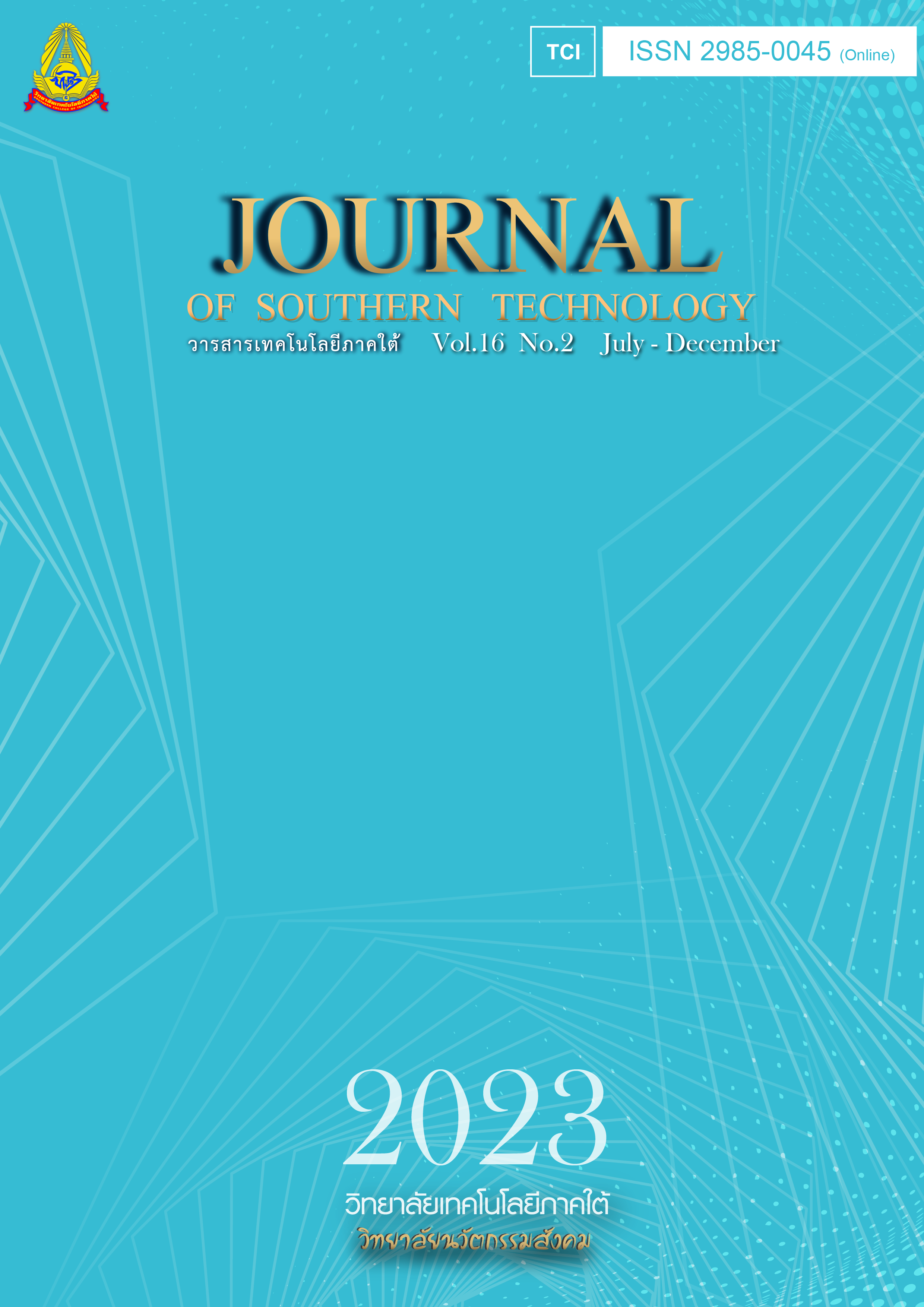Community-Based Tourism Route Development, Bang Klam District, Songkhla Province
Main Article Content
Abstract
The development of community-based tourism routes is part of activities to help increase and generate sustainable incomes for the community. The purpose of this study is to develop community-based creative tourist attraction routes. The study employed a participatory action research design conducted in Mae Tom and Bang Klam Sub-Districts, Bang Klam District, Songkhla Province. A sample of 30 individuals including chief executive of local Sub-District Administrative Organizations, relevant developers, and stakeholders, tourism and marketing experts participated in the study. They were selected using purposive sampling. Research tools are 1) in-depth interview questions, 2) a focus group discussion form, 3) a participant observation form, and 4) a tourism route development plan. Data were analyzed using content analysis and results were presented descriptively. It was revealed that the three major contextual factors which contribute to the strengths in developing new tourism routes are natural resources, green agriculture, and community wisdom. A one-day community-based tourism can be created based on these strengths in two routes. Route 1 could highlight natural and green tourism that covers Suan Pansuk - Phirom Farm - Suan Lung Rom - Morrakot Pool - Bang Klam Floating Market. Route 2 can be for community wisdom tourism which convers places from Wat Khu Tao - Moral Herbal Community Enterprise - Toei Panan Basketry Community Enterprise - Bangklampottery -Wat Khu Tao to Prachuap Silp Manora Training Center. Sustainable income generation and self-reliance of the people conceives through activities related to tourism management, e.g., community tour agents, local taxi services, food preparation for tourists, and community product distribution. Findings of this study have been applied to promote tourism and contribute to the body of knowledge for students and general public as well as generating activities and incomes for the community.
Article Details

This work is licensed under a Creative Commons Attribution-NonCommercial-NoDerivatives 4.0 International License.
-
Authors must agree to the journal publication rules and allow the editors to edit the manuscripts for publication.
-
Author’s right belongs to the author but Journal of Southern Technology holds the right of first publication and thus allow readers to use the article for the purpose of education but not commercial.
References
Davenport, T., & Prusak, L. (2002). Working Knowledge: How Organizations Manage What they Know. Boston: Harvard Business School Press.
Department of Community Development. (2021). Applying the New Theory to Khok Nong Na of Kindness and Hope. Bangkok: Community Development, Ministry of Interior. [In Thai]
Kanchom, W. (2015). Analysis of Community Problems and Development Guidelines (Teaching Publications). Bangkok: Faculty of Humanities and Social Sciences Valaya Alongkorn Rajabhat University. [In Thai]
Khaykhaw, P., Bunkumnerd, S., & Sutaim, P. (2021). The community based tourism management of Bansuankluai, Bansong Sub-district, Wiengsa, Surat Thani Province. Journal of MCU Nakhondhat, 8(9), 211-226. [In Thai]
Natsupha, C. (2011). Community Economy Concept Theoretical Proposals in Different Social Contexts (2nd Printing). Bangkok: Sangsan. [In Thai]
Pansiri, P. (2016). Documents for Teaching the Course Community Organization Development (Teaching Publications). Nakhon Pathom: Nakhon Pathom Rajabhat University. [In Thai]
Phutakosa, K. (2011). The Complete Handbook of Community Development of Learning. Retrieved March 15, 2022, from http:// www1.nrct.go.th/downloads/sci_adviser/manual_develop_community.pdf [In Thai]
Puang Ngam, K. (2019). Community and Local Self-Management (2nd Printing). Nonthaburi: Thammasarn. [In Thai]
Santasombat, Y. (2004). Ecotourism: Cultural Diversity and Resource Management (2nd Printing). Bangkok: Knowledge Development and Policy Study Project on Biological Resources Management in Thailand. [In Thai]
Sarobol, S. (2004). Community-based tourism management. Research Community, 10(57), 15-21. [In Thai]
Setkij, W. (2020). Sustainable development in the context of national development. Journal of Political Economy Burapha, 8(1), 73-98. [In Thai]
Srithong, S. (2009). Enhancement of Leadership Potential in Community Development. Bangkok: Odeon Store. [In Thai]
Thongma, W., & Chen, K.Y., & Leelapattana, W. (2021). Sustainable cultural tourism management according to sufficiency economy philosophy of Mae-Ngon watershed area, Fang District, Chiang Mai Province, Thailand. World Research Summit for Tourism and Hospitality, December 10-13, 2021, pp. 450-456.
Tissamana, A. (2015). Guideline for environmental conflict resolution: a case study of Suan Phueng, Ratchaburi. Environmental Management Journal, 11(2), 60-75. [In Thai]
UNESCO. (2011). Sustainability of Community Learning Centres: Community Ownership and Support. Bangkok: UNESCO.
United Nation Organization. (1981). United Nation Department of International Economic and Social Affair. Popular Participation as a Strategy for Promoting Community Level Action and Nation Development (Report of the Meeting for the ad hoc Group of Expert), New York: United Nation.
United Nation Organization. (1987). Report of the World Commission on Environment and Development (Our Common Future). New York: United Nation.

